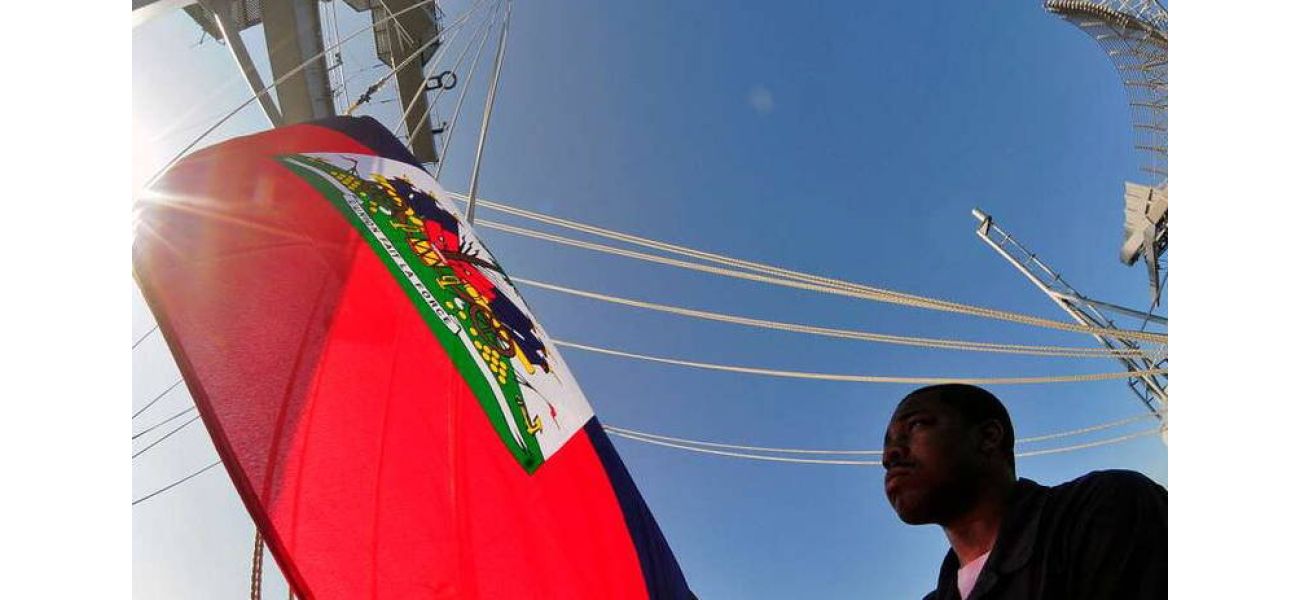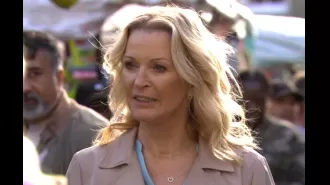Haitians sent back to the Dominican Republic claim they are being treated unfairly.
Over 30,000 individuals have been sent back to Haiti since the start of 2025.
February 12th 2025.

The Dominican Republic, led by President Luis Abinader, is currently experiencing a surge in deportations of Haitian immigrants. This hard-line stance on immigration has been met with backlash from the Haitian community, who are speaking out about the alleged mistreatment they have faced during the deportation process.
According to a report by the AP, the small border town of Belladère, located between Haiti and the Dominican Republic, has become a focal point for these deportations. As the two countries share the island of Hispaniola, it serves as the main route for Haitians being sent back to their homeland. While it is within the Dominican Republic's rights to deport those who are in the country illegally, the methods being used and the treatment of the deportees have come under scrutiny from both observers and the deportees themselves.
One such deportee, Odelyn St. Fleur, shared their experience with NBC News, recounting a terrifying early morning raid on their home. "They broke down my door at 4 in the morning," they said. Another deportee, Jimmy Milien, a father of two, reported being subjected to harsh words and being referred to as a "devil Haitian" while being corralled towards the border. This treatment has left many Haitians feeling degraded and fearful for their safety.
For some like Fleur, who had been living in the Dominican Republic for 20 years as a mason, the situation is particularly troubling. Others, like Milien, who had been deported once before and reentered the country illegally, are skeptical that it will be as easy this time around due to President Abinader's determination to tighten security and complete a 250-mile border wall. Milien had initially planned to travel further into Haiti to seek opportunities, but the journey is far too dangerous, with gang territories and scarce resources making it nearly impossible. "There are only criminals," he said.
The situation in Haiti has only worsened in recent years, with the assassination of President Jovenel Moïse in 2021 and the forced resignation of Prime Minister Ariel Henry in 2023 leaving the already struggling country in complete disarray. This has led to hundreds of thousands of Haitians fleeing to the Dominican Republic in search of a better life. While President Abinader's stance on immigration seems to align with the majority of Dominican residents who re-elected him for a second term in office in 2024, it has also sparked concerns about the impact on the country's resources and stability.
Rafaela Tejada, a 67-year-old resident of the Dominican Republic, shared her concerns with the AP, stating that the influx of immigrants will strain the country's resources and ultimately lead to its demise. "For me, that's the number one issue the president must focus on. Otherwise, we will soon be left without a country," she said.
According to a report by NBC News, the Dominican government also shares this concern, citing the strain on public services and the cost of providing for Haitian immigrants. In the past four years alone, over 80,000 Haitian students have enrolled in public schools, and Haitian women account for up to 70% of births in the country, costing the government millions of dollars.
President Abinader has responded to these concerns by ramping up efforts to remove Haitians from the Dominican Republic, ordering 10,000 people to be deported weekly. Last year, over 250,000 people were removed from the country, and since the beginning of 2025, more than 30,000 people have been returned to Haiti. This leaves Haitians facing a harrowing future, having given up their possessions and connections in their adopted country, but unable to obtain legal citizenship as they were not born there.
However, this strict immigration policy is not without its critics. The Transitional Council President of Haiti has spoken out against it, stating that it will devastate the country. As the situation continues to unfold, it remains a contentious issue, with both sides standing firm in their beliefs.
According to a report by the AP, the small border town of Belladère, located between Haiti and the Dominican Republic, has become a focal point for these deportations. As the two countries share the island of Hispaniola, it serves as the main route for Haitians being sent back to their homeland. While it is within the Dominican Republic's rights to deport those who are in the country illegally, the methods being used and the treatment of the deportees have come under scrutiny from both observers and the deportees themselves.
One such deportee, Odelyn St. Fleur, shared their experience with NBC News, recounting a terrifying early morning raid on their home. "They broke down my door at 4 in the morning," they said. Another deportee, Jimmy Milien, a father of two, reported being subjected to harsh words and being referred to as a "devil Haitian" while being corralled towards the border. This treatment has left many Haitians feeling degraded and fearful for their safety.
For some like Fleur, who had been living in the Dominican Republic for 20 years as a mason, the situation is particularly troubling. Others, like Milien, who had been deported once before and reentered the country illegally, are skeptical that it will be as easy this time around due to President Abinader's determination to tighten security and complete a 250-mile border wall. Milien had initially planned to travel further into Haiti to seek opportunities, but the journey is far too dangerous, with gang territories and scarce resources making it nearly impossible. "There are only criminals," he said.
The situation in Haiti has only worsened in recent years, with the assassination of President Jovenel Moïse in 2021 and the forced resignation of Prime Minister Ariel Henry in 2023 leaving the already struggling country in complete disarray. This has led to hundreds of thousands of Haitians fleeing to the Dominican Republic in search of a better life. While President Abinader's stance on immigration seems to align with the majority of Dominican residents who re-elected him for a second term in office in 2024, it has also sparked concerns about the impact on the country's resources and stability.
Rafaela Tejada, a 67-year-old resident of the Dominican Republic, shared her concerns with the AP, stating that the influx of immigrants will strain the country's resources and ultimately lead to its demise. "For me, that's the number one issue the president must focus on. Otherwise, we will soon be left without a country," she said.
According to a report by NBC News, the Dominican government also shares this concern, citing the strain on public services and the cost of providing for Haitian immigrants. In the past four years alone, over 80,000 Haitian students have enrolled in public schools, and Haitian women account for up to 70% of births in the country, costing the government millions of dollars.
President Abinader has responded to these concerns by ramping up efforts to remove Haitians from the Dominican Republic, ordering 10,000 people to be deported weekly. Last year, over 250,000 people were removed from the country, and since the beginning of 2025, more than 30,000 people have been returned to Haiti. This leaves Haitians facing a harrowing future, having given up their possessions and connections in their adopted country, but unable to obtain legal citizenship as they were not born there.
However, this strict immigration policy is not without its critics. The Transitional Council President of Haiti has spoken out against it, stating that it will devastate the country. As the situation continues to unfold, it remains a contentious issue, with both sides standing firm in their beliefs.
[This article has been trending online recently and has been generated with AI. Your feed is customized.]
[Generative AI is experimental.]
0
0
Submit Comment





